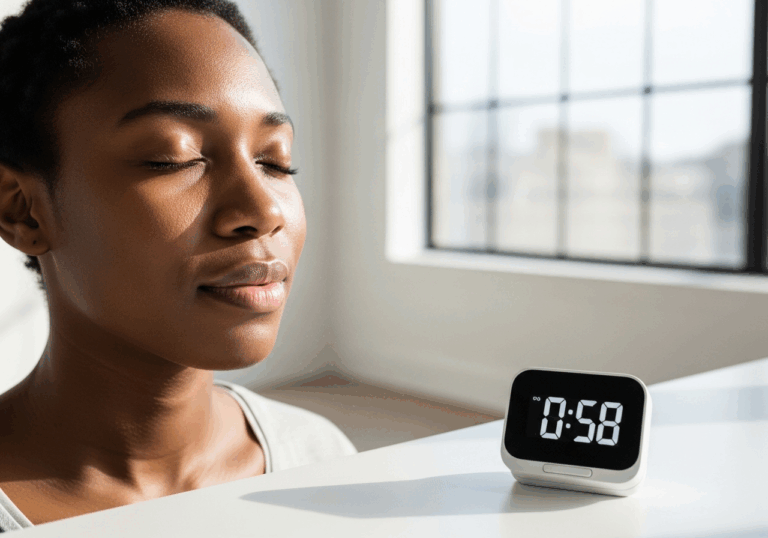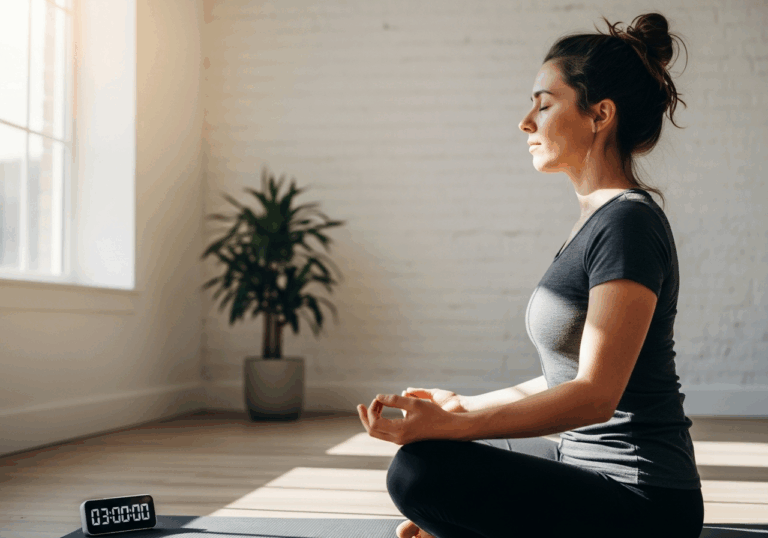Science-Backed Tips
Breathe Your Way to Better Mood
Diaphragmatic breathing reduces anxiety by 25% in 8 weeks.
📊 Did you know?
💡 Why It Matters
1️⃣
Regular diaphragmatic breathing can lead to a significant reduction in anxiety levels, improving overall mental health.
2️⃣
Improved vagal activity may enhance emotional regulation and resilience against stress.
3️⃣
Enhanced attentional focus can lead to better performance in daily tasks and activities.
✅ Try These Micro-Tips
🎯
Practice diaphragmatic breathing for 20 minutes, three times a week.
🎯
Incorporate guided breathing sessions into your daily routine using apps or online resources.
🎯
Engage in deep breathing exercises before stressful situations to manage anxiety.
🎯
Join a local or online group focused on breath training for community support.
📚 The study
The results revealed a significant reduction in anxiety and negative emotions, with participants experiencing a notable improvement in their attentional scores (p<0.01).
This research underscores the profound impact that regular breath training can have on both mood and cognitive focus.
By incorporating diaphragmatic breathing into daily routines, individuals can cultivate a more positive mental state and enhance their ability to concentrate.
The implications of these findings are far-reaching, as improved vagal activity associated with diaphragmatic breathing may bolster emotional regulation and resilience against stress.
Furthermore, enhanced attentional focus can lead to better performance in everyday tasks, ultimately contributing to a higher quality of life.
As we navigate the complexities of modern living, embracing practices like diaphragmatic breathing can serve as a powerful tool for mental well-being and cognitive enhancement.
This study not only highlights the importance of breathwork but also encourages individuals to prioritize their mental health through simple yet effective techniques.
❓ Frequently Asked Questions ❓
Learn more
What is diaphragmatic breathing?
Diaphragmatic breathing is a technique that involves deep breathing using the diaphragm, allowing for more oxygen intake. This method can help reduce anxiety and improve overall mental health.
How does diaphragmatic breathing affect anxiety levels?
Regular diaphragmatic breathing can lead to a significant reduction in anxiety levels, with studies showing a decrease of approximately 25%. This technique enhances vagal activity, which is linked to improved emotional regulation.
What is RMSSD and why is it important?
RMSSD stands for Root Mean Square of Successive Differences, a measure of heart rate variability that reflects autonomic nervous system function. Increased RMSSD indicates better vagal tone, which is associated with improved mood and stress resilience.
How often should I practice diaphragmatic breathing?
It is recommended to practice diaphragmatic breathing for 20 minutes, three times a week. Consistent practice can lead to significant improvements in mood and cognitive focus.
Can guided breathing sessions be done alone?
Yes, guided breathing sessions can be done alone using various apps or online resources. These tools provide structured guidance to help you effectively practice diaphragmatic breathing.
What are the benefits of joining a breath training group?
Joining a local or online group focused on breath training can provide community support and motivation. It also allows for shared experiences and learning from others’ practices.
How does breathing affect attentional focus?
Engaging in regular diaphragmatic breathing can enhance attentional focus, leading to better performance in daily tasks. Improved focus is linked to reduced anxiety and increased cognitive clarity.
What should I do before a stressful situation?
Before a stressful situation, practicing deep breathing exercises can help manage anxiety and promote calmness. This preparation can enhance your ability to cope with stress effectively.
How long does it take to see results from breathing training?
Results from breathing training can be observed within a few weeks, with significant reductions in anxiety and improvements in mood reported after eight weeks. Consistent practice is key to experiencing these benefits.
Is diaphragmatic breathing suitable for everyone?
Diaphragmatic breathing is generally safe and beneficial for most individuals, including healthy adults. However, those with specific health concerns should consult a healthcare professional before starting any new breathing practices.





